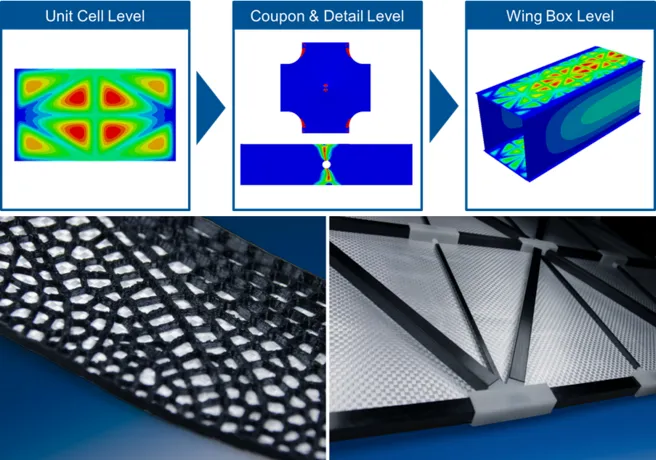In the "Robust Skin" project, a material and process solution for damage-tolerant hybrid structures was investigated in collaboration with partners Airbus Defence and Space GmbH and Neue Materialien Bayreuth GmbH (NMB). These structures are intended to contribute to more sustainable air traffic for future urban aircraft through weight reduction while meeting the high robustness requirements.
At the Chair of Carbon Composites, a numerical multiscale approach was developed to identify suitable material pairings and construction principles for the anisotropic and inhomogeneous hybrid solutions. The principle of a dragonfly wing was taken as inspiration from nature. This principle is based on a lightweight concept, which locally reinforces a thin membrane with a fine grid. A transfer of this principle to aviation was investigated in this project and designed in the form of various combinations of flexible membranes and rigid, multi-hierarchical grid structures.
The developed concepts and models were validated through experiments on a specially designed test rig for characterizing pre-stressed membranes under impact loads. Finally, they were exemplified through demonstrators. The investigated concept of a "Robust Skin" demonstrates the potential to enable more robust lightweight designs compared to conventional approaches.
The Chair of Carbon Composites thanks Bayerische Forschungsstiftung (BFS) for funding the project “Robust Skin” over a period of 18 months.
News
Bionic-inspired lightweight design concepts – completion of the “Robust Skin” project
